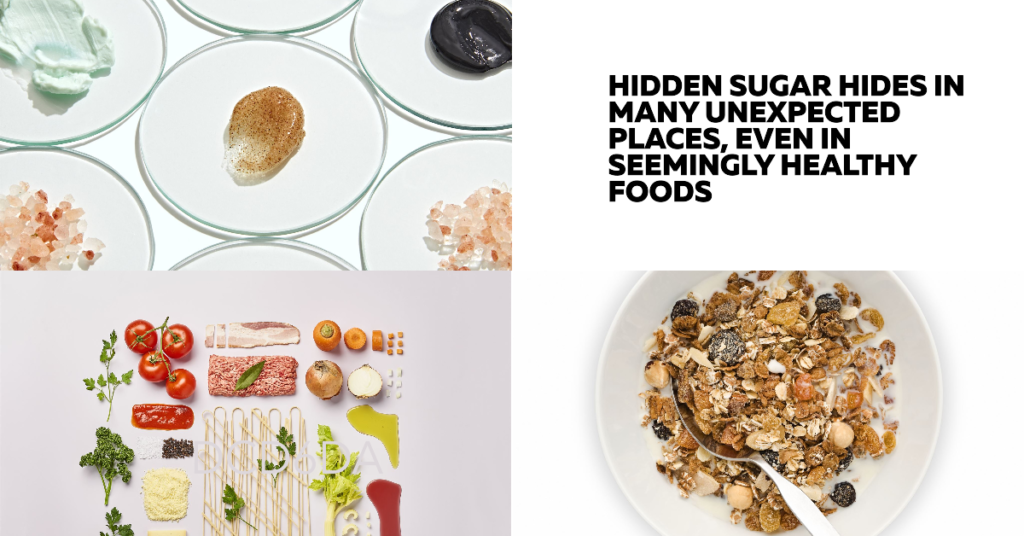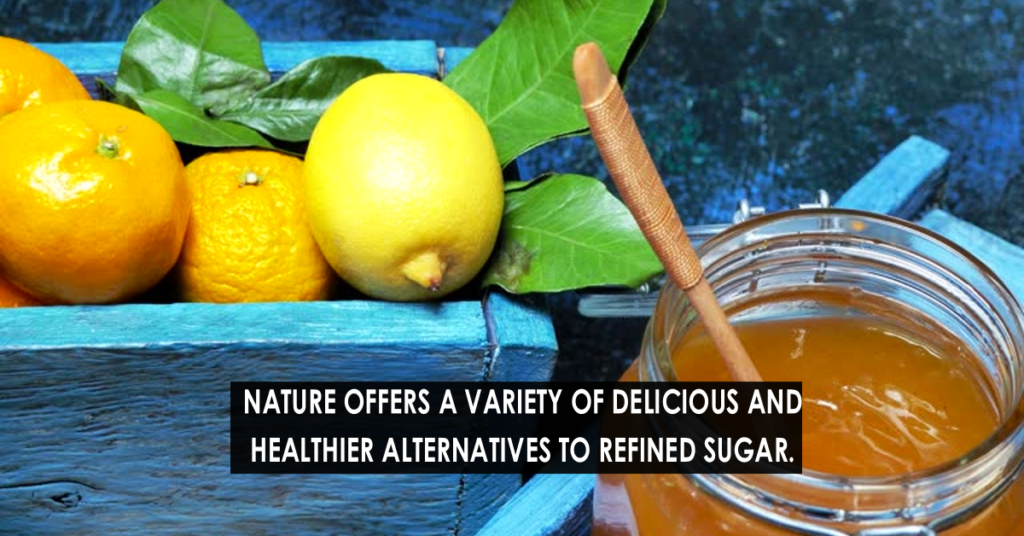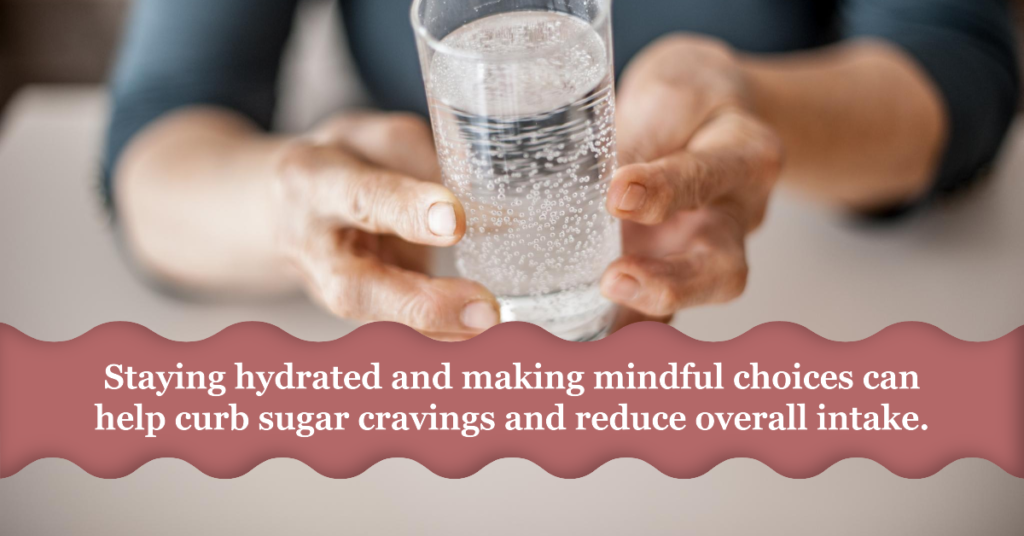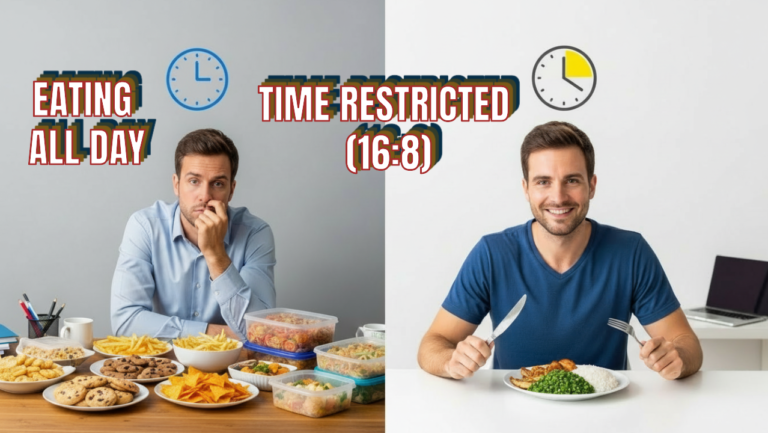
Welcome back to our “Nourishing Your Whole Self” series on SaziBox Health! In our previous articles, we’ve explored the foundations of nutrition, the importance of macronutrients and micronutrients, the power of plant-based eating, and the fascinating connection between your gut and brain. Today, we’re delving into the sweet, yet complex, world of sugar.
Sugar: Beyond the Sweetness

Sugar isn’t just a simple ingredient; it’s a complex group of molecules that come in many forms. Let’s break down the common types:
- Glucose: The primary energy source for our bodies. It’s naturally found in fruits and vegetables but also added to processed foods.
- Fructose: Naturally occurring in fruits and honey, but also added to processed foods in the form of high-fructose corn syrup (HFCS). It’s metabolized differently than glucose, primarily by the liver.
- Sucrose: Table sugar, composed of glucose and fructose. It’s extracted from sugar cane or sugar beets.
- Lactose: The natural sugar found in milk and dairy products. Some people have difficulty digesting lactose due to a deficiency of the enzyme lactase.
- High-Fructose Corn Syrup (HFCS): A highly processed sweetener made from corn starch. It’s cheaper than sucrose and is often used in processed foods and beverages.
Sugar’s Sneaky Hideouts

Sugar isn’t always obvious. It hides under many names in everyday foods:
- Condiments: Ketchup, BBQ sauce, salad dressings
- Bread: Even whole-wheat bread can have added sugar
- Baked Goods: Cookies, cakes, pastries
- Yoghurt: Flavored yoghurts often have high sugar content
- Granola Bars: Some brands pack in as much sugar as candy bars
Interactive Tip: Become a sugar detective! Check ingredient lists for words ending in “-ose” (glucose, fructose, sucrose) and other sneaky names like corn syrup, agave nectar, or evaporated cane juice.
The Bitter Truth: Sugar’s Impact on Health

Excessive sugar consumption is linked to a range of health problems:
- Obesity: Sugar is high in calories and low in nutrients, contributing to weight gain and obesity.
- Type 2 Diabetes: High sugar intake can overload the body’s ability to regulate blood sugar, leading to insulin resistance and diabetes.
- Heart Disease: Sugar can raise blood pressure, increase inflammation, and contribute to unhealthy cholesterol levels, all risk factors for heart disease.
- Tooth Decay: Sugar feeds bacteria in the mouth, which produces acid that erodes tooth enamel.
- Other Concerns: Fatty liver disease, metabolic syndrome, and certain types of cancer have also been linked to excessive sugar intake.
References:
- Yang, Q., Zhang, Z., Gregg, E. W., Flanders, W. D., Merritt, R., & Hu, F. B. (2014). Added sugar intake and cardiovascular disease mortality among US adults. JAMA Internal Medicine, 174(4), 516-524. www.fasttalklabs.com www.fasttalklabs.com
- Stanhope, K. L. (2016). Sugar consumption, metabolic disease, and obesity: The state of the controversy. Critical reviews in clinical laboratory sciences, 53(1), 52-67. journal.unnes.ac.id journal.unnes.ac.id
Naturally Sweet Solutions

Thankfully, nature provides delicious and healthier alternatives:
- Stevia: A plant-based sweetener with zero calories.
- Honey: Offers trace minerals and antioxidants.
- Maple Syrup: Contains manganese and zinc.
- Dates: Provide fibre and potassium.
Tip: Experiment with these natural sweeteners in your cooking and baking to find what you enjoy most. Start with small amounts, as they can be sweeter than sugar.
Read more
Cutting Back: Strategies for Success

Reducing your sugar intake doesn’t mean giving up sweetness altogether. Here’s how to make a gradual and sustainable shift:
- Read Labels: Be mindful of added sugars lurking in processed foods.
- Choose Whole Foods: Focus on fruits, vegetables, and whole grains.
- Cook at Home: You have more control over ingredients when you prepare your own meals.
- Gradually Reduce: Slowly decrease the amount of sugar you add to foods and drinks.
- Stay Hydrated: Drinking water can help curb sugar cravings.
- Find Healthy Swaps: Substitute sugary drinks with water, herbal tea, or sparkling water with a splash of fruit juice.
- Mindful Eating: Pay attention to your food and savour the natural sweetness.
Interactive Challenge: Commit to a “No Sugar Added” week. See how it impacts your energy levels, mood, and cravings! Share your experience using #SaziBoxSugarChallenge
Reclaim Your Health, One Sweet Step at a Time
Sugar isn’t inherently evil, but excessive consumption can have detrimental effects on our health. By understanding the different types of sugar, being mindful of hidden sources, and opting for natural alternatives, we can make informed choices that support our well-being.
Share Your Tips! We’d love to hear about your strategies for reducing sugar intake. Share your tips and experiences in the comments below or on social media using #SaziBoxSweetAlternatives.
Let’s create a healthier, happier community together!





[…] The Truth About Sugar: Health Impacts & Better Choices […]
[…] The Truth About Sugar: Health Impacts & Better Choices […]
벼룩시장 구인구직 및 신문 그대로 보기 (PC/모바일) | 구인구직 앱 어플 무료 설치 다운로드 | 모바일 벼룩시장 보는 방법 | 벼룩시장 부동산 | 지역별 벼룩시장 | 벼룩시장 종이신문 에 대해 알아보겠습니다. 섹스카지노사이트
thanks for comments